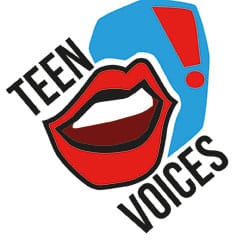

My name is Hannah Downing. I live in San Antonio, Texas. I just completed my senior year of high school. I was a drum major for my high school’s marching band and an editor for the school literary magazine. I was an enthusiastic participant in the classroom. I was a well-established voice in my class and respected among my peers. I was just a regular student, mostly unremarkable.
About a year and a half ago I was the target of sexual harassment.
One of my male peers, someone I had considered a friendly acquaintance, regularly touched, squeezed, and pinched me on my arm and waist and told me overtly sexual things about himself and me. Obviously, I wasn’t okay with this. I’m not a huge fan of being touched at random without my consent, and it was grossly inappropriate of him to discuss the sordid details of his personal, private time with me.
I told him to stop every time he did it, but I said it this way, “Oh my gosh, stopppppp!” with my voice highly pitched and with a playful shove. I didn’t want to hurt his feelings by acting too sensitive to the situation.
As time went on, I grew increasingly uncomfortable. I finally confided in my mother, and told her that I didn’t want to take the issue to my school’s administration and cause a fuss. I wanted to deal with him myself.
My mom taught me to say “no” like I meant it. She told me that up to that point I had been protesting in a manner that communicated to him that I wasn’t serious about wanting him to stop. She taught me to say “no” in a calm and firm voice. She coached me to learn how to give a cold stare and strong posture. We practiced a lot, and by the end of my training I felt ready to end the harassment once and for all.
The next time he touched me, I implemented my new method of saying “no.” I tried to emulate every badass female superhero I knew. I looked him in the eye with the utmost seriousness and I said in a strong, clear tone, “Stop touching me. I don’t want to be touched.”
Still, he continued…
That broke me. In that moment, when I was trying so hard to establish control over a situation that deeply disturbed me, he just ignored me. It was a complete invalidation of my autonomy. He didn’t care about my consent. He didn’t care about my feelings. To him, I wasn’t a person worthy of respect. It made me feel dirty and worthless.
Eventually, I managed to stop the harassment by avoiding him, which was difficult because we shared an extracurricular activity that required us to work together.
Although it was over, I was left with some psychological effects. My self-esteem was gone. I felt like I had no power over my body; that at that point anyone could do anything to me, and there would be nothing I could do. For a very long time I was fearful and paranoid that I would be harassed again or even assaulted. If one guy thought it was perfectly fine to treat me like a plaything, who’s to say no one else would? It took me a very long time to feel normal again.
Two years ago, I never imagined that I would be the target of sexual harassment. In my mind there was a certain type of person who was more likely to be harassed. Someone quiet or timid, or someone who was more overt about her sexuality. I thought I came off as strong and intimidating but, still, it happened to me.
I was curious about who else might have had similar experiences to mine, so I asked some of my friends to share thoughts or anecdotes about sexual harassment and assault. One of my friends recalled the times she exercised in our school’s weight room. “There was this guy that gave me creepy vibes and he would come over and talk to me while I worked out,” she said. “After a few weeks he would start to comment about how he saw my body transform into an ‘attractive woman.’ It got even worse when he had three of his friends say similar things about my legs when I did squats. I never went back into the weight room.”
Her story was shocking to me. My friend held multiple leadership positions in various clubs and organizations at school, and she’s the sweetest, most well-meaning person I’ve ever met. How could anyone frame her in a sexual light in a school environment? What had she done to invite any advances?
There was no way that those boys thought they were engaging in meaningful conversation with my friend or giving her actual compliments. Why do people think it’s okay to ignore consent?
“The American sex education system is lacking, at best,” another friend of mine, a fellow editor of the literary magazine, told me. “Consent is not taught in any capacity in most public schools, and if it is discussed at all, it’s lumped in with suicide and bullying in the student crisis section of the curriculum.” “If we are taught about consent, we are taught in the most basic of terms. ‘If she says yes, go for it. If she says no, don’t.’ Consent isn’t explained in terms of mutual enthusiasm, or desire, or enjoyment.”
I’m inclined to agree with her. Our system is broken. On multiple occasions this friend and I have discussed the effects of rape culture and our society’s indifference to women’s issues. We’ve expressed our concerns over the possibility of being assaulted while at college and becoming just another statistic in America’s ever-increasing problem with sexual assault on college campuses.
We swap articles on the subject, but we never learn about the intricacies of consent and healthy, safe sex in a classroom setting. I get most of my information from the internet, which is vast and often misleading, and I only receive that information because I seek it out. We are all at risk of sexual harassment, assault, and abuse, and we can’t protect ourselves from assault simply by dressing conservatively or practicing abstinence.
What we can do is educate ourselves. We need to openly discuss sexual health and conduct. We need to have comprehensive sex ed in schools and more accessible counseling for survivors of assault.
I invite anyone reading this to start a conversation with friends or family. It’s really difficult to start talking about personal experiences with sexual harassment, assault, or abuse, but it is important to let our loved ones know that it’s okay to be open about their experiences. Survivors of assault often suffer in silence because they feel powerless. Some even feel that they brought the assault upon themselves.
Removing the stigma and shame of sexual assault can happen by engaging in a safe, free dialogue like I did with my friends. It may seem like a small thing, but starting that conversation is a step in the right direction to creating a safer, more just, and more understanding society for us all.

The Jewish Women’s Archive’s Rising Voices Fellowship was honored as Teen Voices’ ’21 Leader for the 21st Century’ in 2019. It is a 10-month program for female-identified teens in high-school who have a passion for writing, a demonstrated concern for current and historic events, and a strong interest in Judaism, gender and social justice. The Jewish Women’s Archive is a national non-profit devoted to documenting Jewish women’s stories, elevating their voices, and inspiring them to be agents of change. Founded in 1995, JWA is the world’s largest source of material about and voices of Jewish women.


